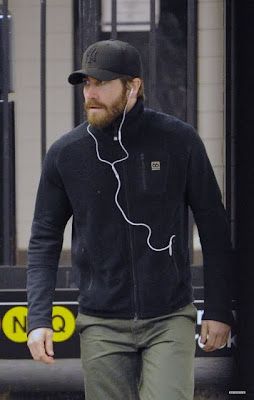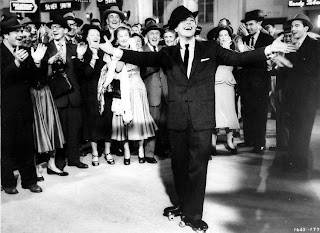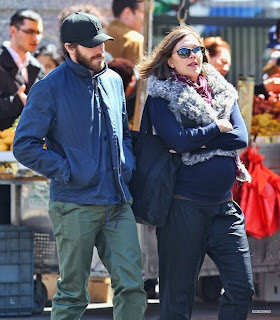
Stanley Donen is probably best known for his codirection of the 1952 classic musical Singin' in the Rain and for Funny Face - the acclaimed Fred Astaire & Audrey Hepburn film. Remarkably, the native of Columbia, South Carolina, got his start in Broadway musical choruses at the age of sixteen and was in Hollywood as an assistant choreographer at the tender age of nineteen.

After a couple of years, Donen advanced to lead choreography with the assistance of rising star Gene Kelly, with whom he had worked on the stage, and finally to sharing directing credit with Kelly on the 1949 musical ON THE TOWN. It became a landmark for its scenes actually shot on the streets of New York City.

Michael Kidd, Gene Kelly and Stanley Donen on the set of It's Always Fair Weather (1955)

The relationship of Donen and Kelly was at times a close yet ultimately troubled one. A close study of the films each directed alone shows that Donen is the superior director. He went on to helm other well-regarded musicals such as SEVEN BRIDES FOR SEVEN BROTHERS, the comedy TWO FOR THE ROAD and the sophisticated adventures CHARADE and ARABESQUE.

Cary Grant and Audrey Hepburn in Stanley Donen’s Charade (1963)

“Audrey makes my soul fly. She opens me up to beautiful feelings.” —Director Stanley Donen on actress Audrey Hepburn

Like Orson Welles, Donen was an exasperatingly precocious boy wonder. He was dancing in the chorus of Pal Joey on Broadway at age 16. At 20, he was a renowned Hollywood choreographer, pepping up musical numbers in dozens of films with his innovative dances and imaginative camera technique. By 28, he had already directed his fourth film, Singin' in the Rain. Along with his frequent collaborator Gene Kelly, he is credited by many critics with having made movie musicals more realistic and integrated.

Stanley Donen with Frank Sinatra and Gene Kelly on the set of On the Town (1949)
In films like On the Town, he essentially invented the idea of the location musical, doing away as much as possible with stagy sets and painted backdrops and then literally taking the action into the streets. Sadly, Donen's later career included a number of flops, which ensured that the intervals between movies grew longer and longer until, again like Orson Welles, he'd become an unemployable legend. Silverman (Public Spectacles, 1981, etc.) is an inspired chronicler who speeds along with a well-choreographed mixture of fact, anecdote, and analysis.
Source: www.kirkusreviews.com
Leslie Caron and Gene Kelly in An American in Paris (1951) directed by Vincente Minnelli
In many ways, Paris is one of the ultimate fantasy cities, a real place that continues to be endlessly imagined—filmed, painted, written about, idolized and longed for, by those who don’t know it and those who do.

“What if we were like Gene Kelly in An American in Paris, and danced along the Seine,” remarks Audrey Hepburn as Regina in Charade, walking with Cary Grant along the river and musing over a Paris from the movies before her time, imagining still, despite the fact of already being in the real place she has dreamed of.
Source: www.heroyalmajesty.ca
Stanley Donen with Cary Grant and Ingrid Bergman filming "Indiscreet" (1958)
Stanley Donen was born April 13, 1924, into loving and, as he described them, "completely middle-class" circumstances. "I was born in Columbia, South Carolina," he said, as if by identifying the location he was delivering volumes about the nature of his upbringing. "My family and I were Southerners," said Donen, "really, really Southern, and really, really American. My mother was born in Columbia, South Carolina. My father was born in Augusta, Georgia, which is just over the border. Yet the family was Southern and American with a distinction. The Donens were Jewish.

Audrey Hepburn and Fred Astaire in "Funny Face" (1957) directed by Stanley Donen
Donen came home from the movie theater one day and seeking entree of his own into Astaire's rarefied universe, announced: 'I want to be a tap dancer. The only thing I want to be is a tap dancer.' My parents thought I was crazy, but they said okay. After all, it wasn't very common for a Jewish boy to become a tap dancer." Stanley Donen took dance lessons in his home town of Columbia, South Carolina for a few years. He graduated from high school when he was sixteen. Rather than going to college, he went to New York City to break into the entertainment business. He quickly managed to get a job dancing in the Broadway musical Pal Joey (starring Gene Kelly).

"There are feelings about New York that I have in my system and can't get rid of," he said. "New York used to represent the absolute best, and the movies were always aspiring to reach up to the quality of Hecht and MacArthur, and Kaufman and Hart, and everything New York had to offer. Being on Broadway, living the life I always wanted, working in this show, which turned out to be this great watershed musical, although none of us really knew that while we were in it - all that added up to what was the best time I had in my life, ever."

Carla rationalized that her brother's uncharacteristic decision to "come home" to be married, under rabbinical supervision, was born of his desire to see that this marriage lasted. "Stanley worshipped Yvette," Carla Davis said in 1994. "He still does. She was a very unique individual. She could not always act on-screen, but she could everywhere else. She was very smart, she knew about art and business... She affected Stanley as no one else ever did or ever will. My brother was madly in love with her." With sisterly affection, Carla Davis added, "Stanley's only problem is, he keeps thinking that romances will turn out just like they do in the movies."

Frank Sinatra, Stanley Donen, Jules Munshin, Gene Kelly - Behind the scenes of Take Me Out to the Ballgame (1949)
While Take Me Out to the Ball Game was in its final preproduction phase, Stanley Donen got married. The date was April 14, 1948, and the bride was Jeanne Coyne, a former New York dancer. "All of Stanley's wives have been beautiful," said his sister, Carla, in 1994, by which time she was able to have formed an opinion about five different sisters-in-law, "but I think Jeannie was really the loveliest. There was something wholesome about her." As to what that "something" could have been, Carla Davis said, "she was a bit older than Stanley, and very Catholic."

Jeanne Coyne, Stanley Donen, Gene Kelly, Carol Haney, and Donald O’Connor on the set of Singin’ in the Rain (1952)
As for the several other marriages of Donen: to the former Marion Marshall (1952-1959), to Adelle Beatty (1960-1971), to Yvette Mimieux (1972-1982), and to Pamari (Pam) Brden (1990-1994), the writer Peter Stone observed, "Stanley doesn't like being alone." An embroidered pillow on the sofa in Donen's living room reads: "Eat, drink, and re-marry."

On May 20, 1952, [Stanley] Donen married for a second time; his bride was the Fox starlet Marion Marshall. He was twenty-eight; she was six years younger. The Donens wed at the home of Marshall's agent, Jules Goldstone, who had also represented Elizabeth Taylor. Marshall had been the companion of the director Howard Hawks, whose wife, the model Nancy "Slim" Hawks, had left Hawks for the agent-producer Leland Hayward, who had been Gene Kelly's agent. Hayward divorced his previous wife, the actress Margaret Sullavan, to marry "Slim." Marion Marshall gave up her career when she married Donen, and they had two sons, Peter, born in 1953, and Joshua, born in 1955.

About the time that Stanley Donen dated actress Elizabeth Taylor: "Elizabeth's mother, Sara, did everything in her power to call it off," Donen said of the romance.

"Her mother hated me in the worst way and did all sorts of nasty things to break us up, including calling Lous B. Mayer, Eddie Mannix, and several other people at the studio." Donen described Sara Taylor as "this very dominating woman, a terrible person. Elizabeth inherited her face and her looks from her father, Francis, but he was a very beaten husband. Sara, I think, at that time certainly was anti-Semitic, despite the fact that Elizabeth subsequently became a Jew."
Some fans of film, even fans of Donen and especially of Bedazzled, have wondered, rather cheekly, how the same person who made Singin' in the Rain could have gone on and made so offbeat a movie as Bedazzled. Both films grew out of his attitude and training. Singin' in the Rain, with its M-G-M gloss, was the product of his studio lessons under fire; Bedazzled, with its theological patina, is a throwback to his earlier education, the aborted Hebrew lessons and the theatrical and literary tradition Donen witnesed when he attended Broadway shows with his parents.

John Raitt and Doris Day in The Pajama Game (1957)
"Some movies, like Pajama Game and Damn Yankees, they're fun, but I don't feel I contributed a lot to them, because they were what they were. They came to me fully formed. And some movies I felt I had a great deal to do with 'creating,' much as I hate the word. 'Making,' I suppose, is a better word." -From: "Dancing on the Ceiling: Stanley Donen and His Movies" by Stephen M. Silverman (1996)

Martin Scorsese presenting
an honorary Oscar to Stanley Donen in appreciation for a body of work marked by grace, elegance, wit and visual innovation - 70th Annual Academys in 1997.
 Among the festival’s endorsers is writer/director Stephen Gyllenhaal, father of actors Maggie and Jake Gyllenhaal. The elder Gyllenhaal graduated from Trinity in 1972.
Among the festival’s endorsers is writer/director Stephen Gyllenhaal, father of actors Maggie and Jake Gyllenhaal. The elder Gyllenhaal graduated from Trinity in 1972.





























































